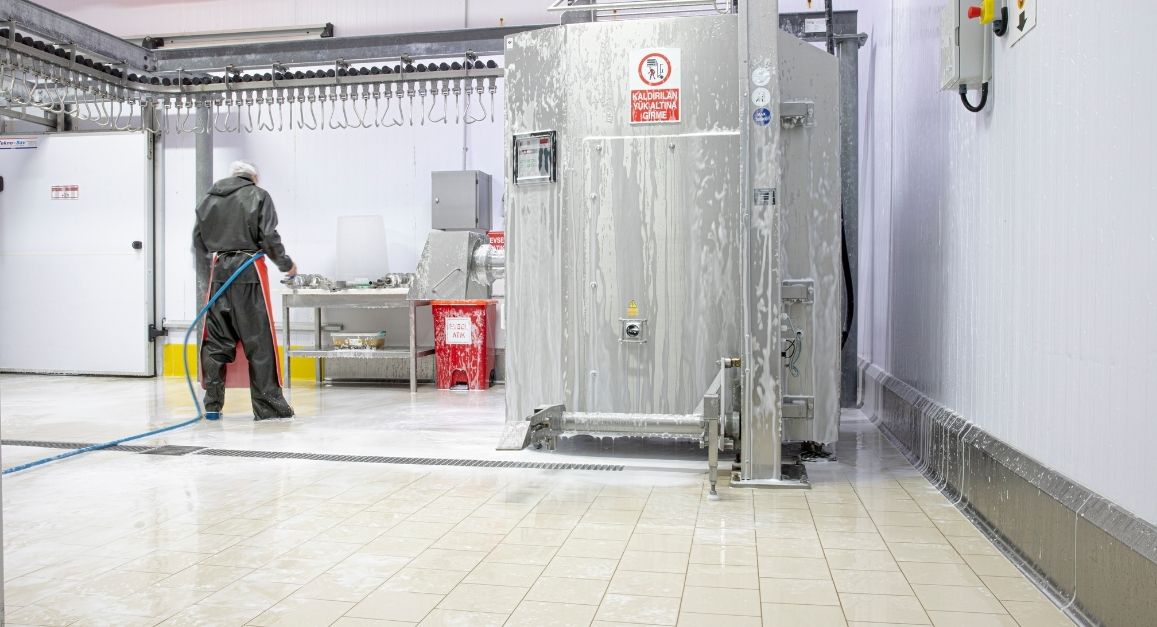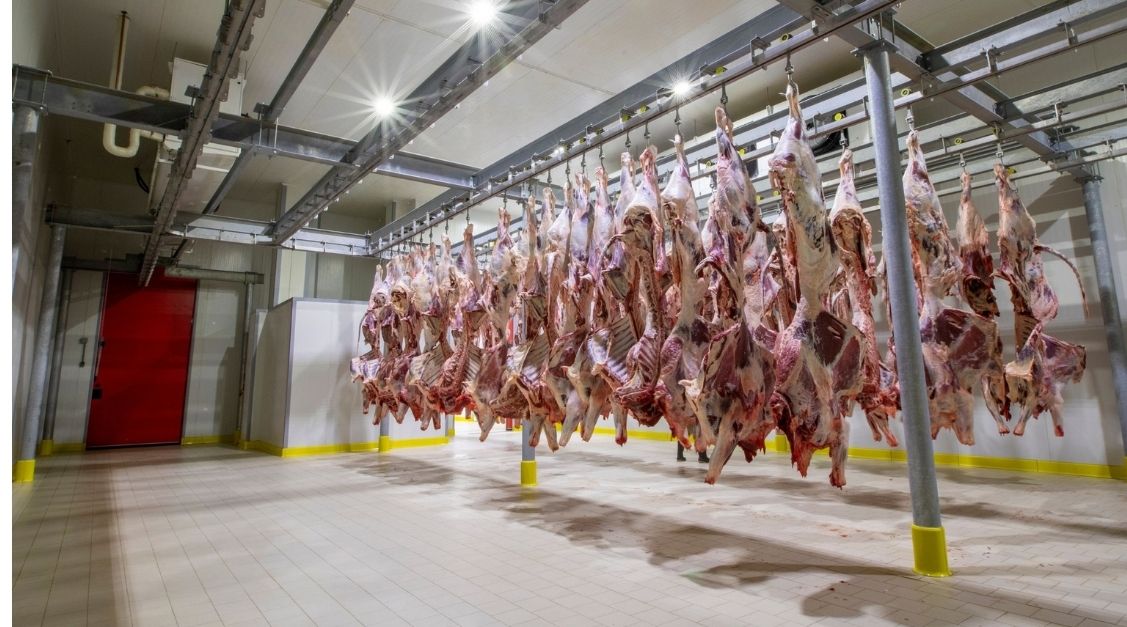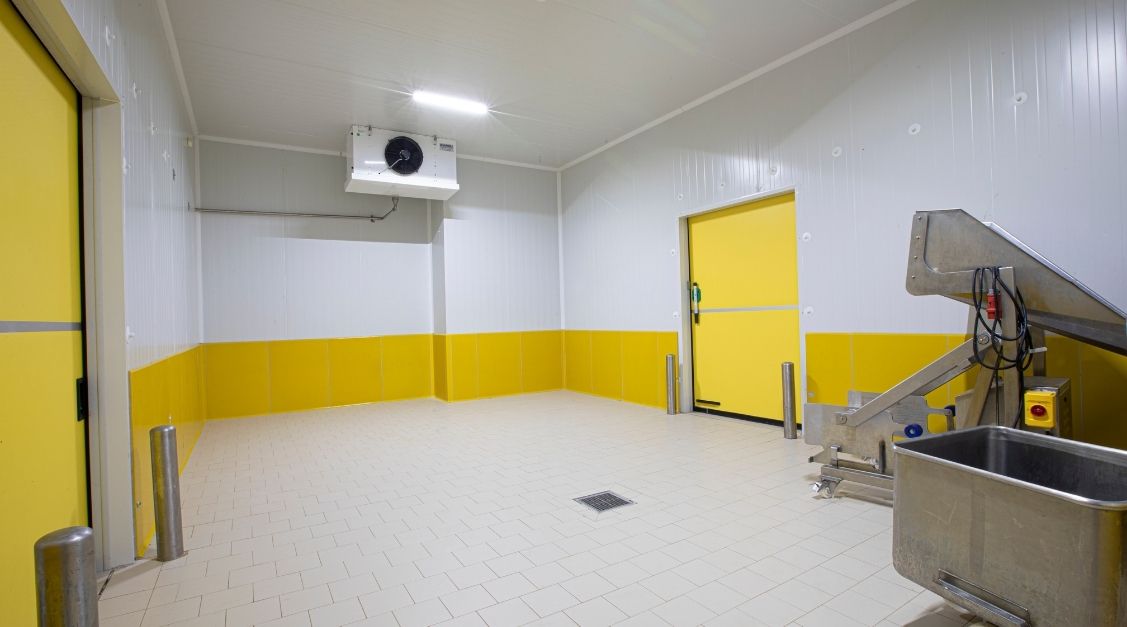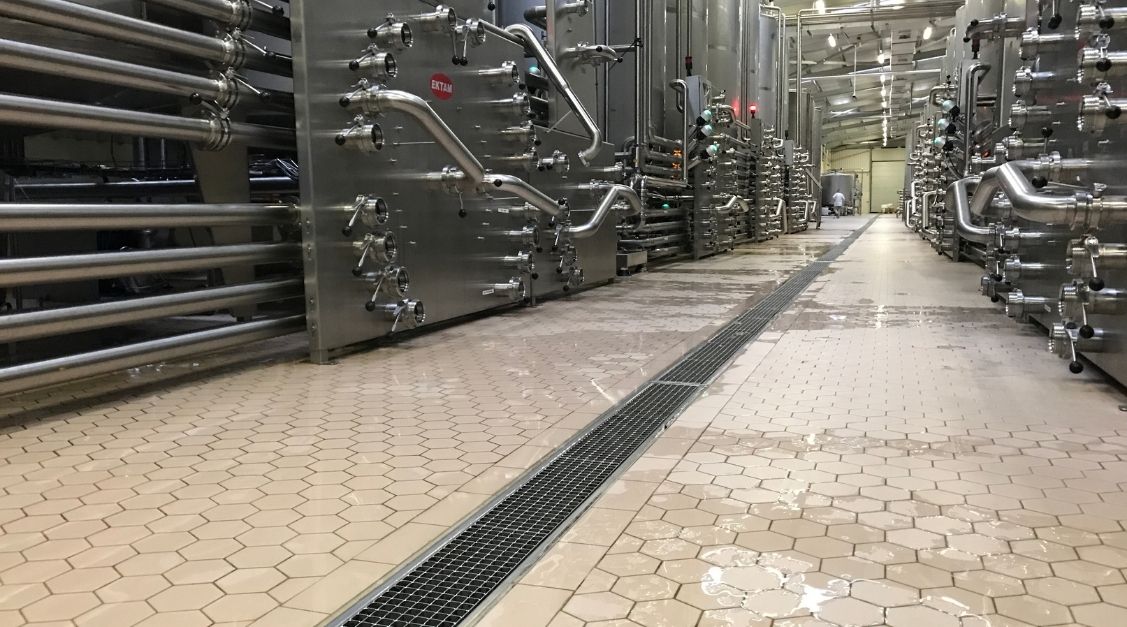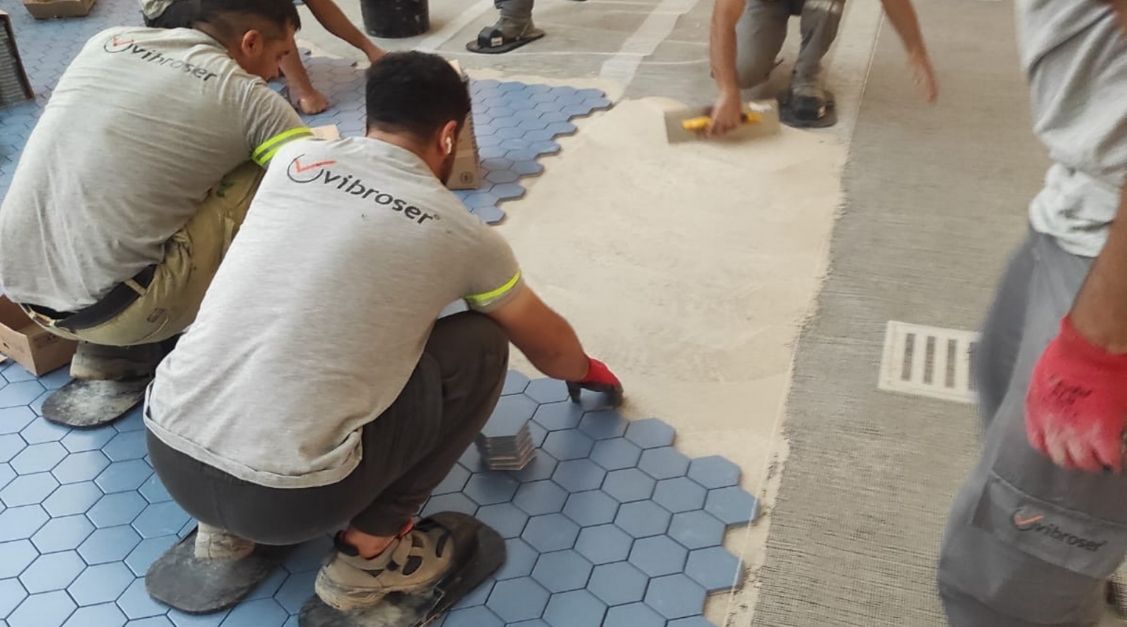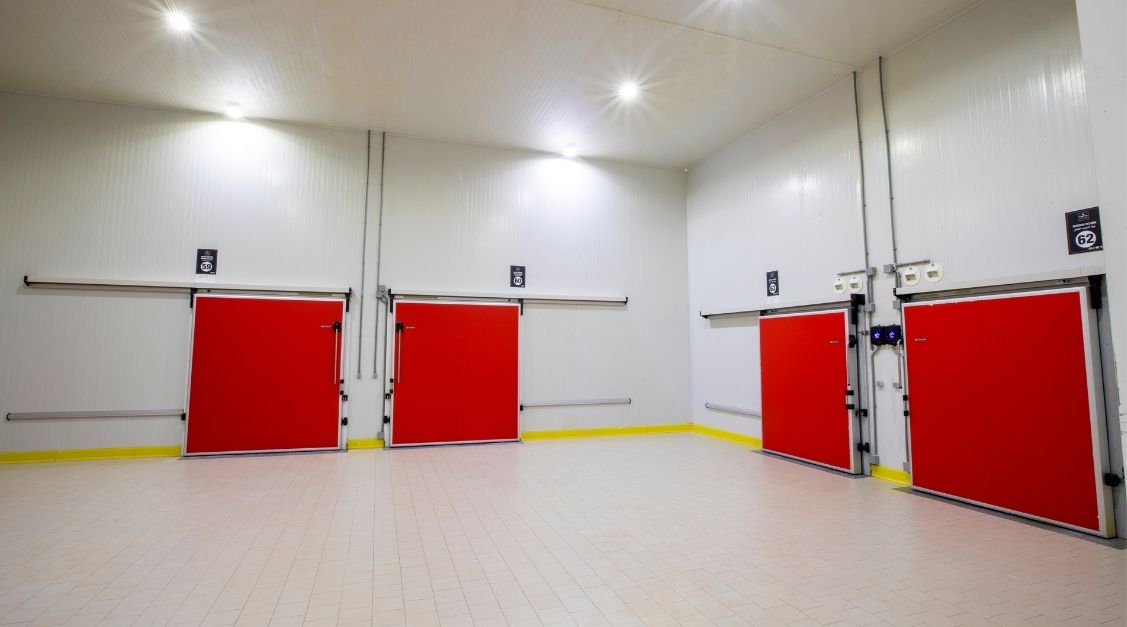Hygienic flooring is an important tool used to ensure the hygiene conditions of any business or health institution and to facilitate easy cleaning. Hygienic floor coverings have great importance, especially in high human traffic places such as the food industry and the health sector. Thus, what are the types of hygienic floor coverings and ceramic tile, which is considered the best?
Hygienic Flooring Types
Hygienic floor covering types vary according to their usage areas and purposes. The most common usage area of these are epoxy coatings, polyurethane coatings, PVC coatings, natural stone coatings and ceramic tiles. In epoxy coatings, the upper part of the floor is covered with colored and decorative materials. In this way, the upper surface of the floor will not affected by extreme weather changes. In addition, the damage caused by grease and chemical materials will be minimized.
Ceramic tiles which were produced while using pressed at high pressure ceramic raw materials are among the hygienic floor covering types. Producing according to international quality standards enables innovative use. It also provides functional usage in many areas, including industrial facilities.
Although the types of hygienic flooring systems are different from each other, they are generally durable, aesthetic and stylish products. Its features may vary depending on the type of product. It is used in flooring and allows a sterile and aesthetic floor structure.
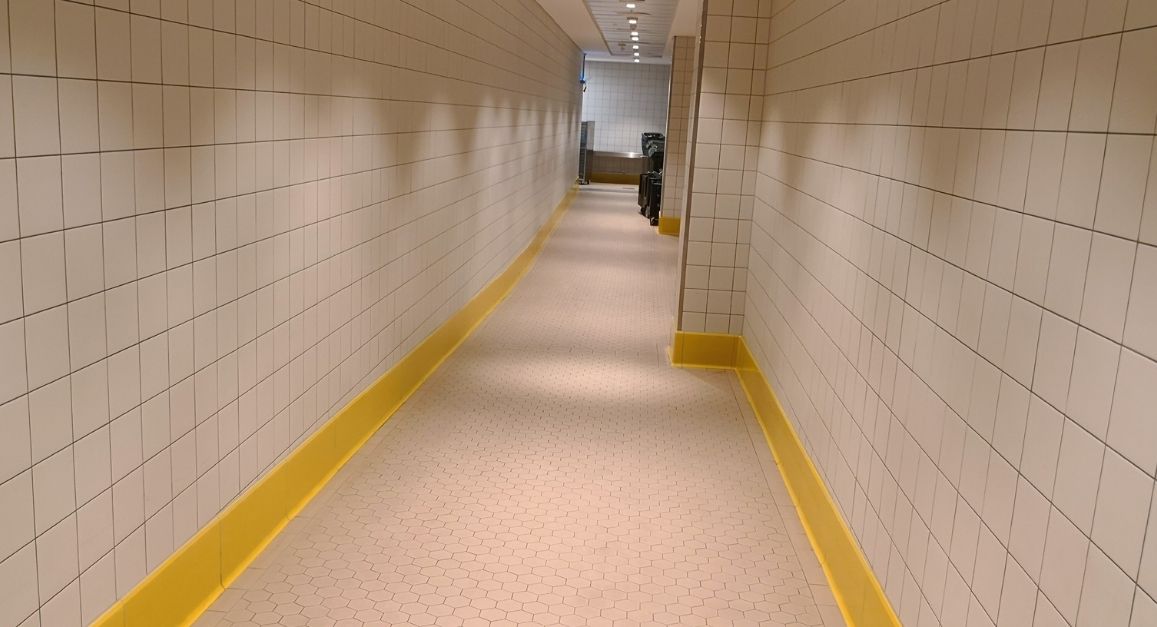
The Best Hygienic Flooring: Ceramic Tile
The best hygienic flooring: ceramic tile is a durable and hygienic product that is highly successful to meet demands. Ceramic tiles are made of high-density, sintered clay and minerals. Therefore, ceramic tiles are resistant to water, moisture, acids and chemicals. In addition, because of its easy-to-clean feature, it prevents the formation of bacteria and germs. And it is also appreciated for its aesthetic appearance.
Advantages of Ceramic Tile Coverings
The advantages of ceramic hygienic floor tiles are quite numerous. It is also closely related to the properties of the products. In general terms the advantages of ceramic tiles can be listed as follows:
- Hygienic
- Durability
- Waterproof
- Easy to clean
- Aesthetic appearance
Such advantages are included. They go through a very special production process, also easy to clean. These aspects make an important contribution to the sterilization of the floor. In addition, it is highly resistant to external factors such as chemicals and high temperatures. Its liquid prevention structure prevents the product from deforming in a short time. Thanks to these advantages, ceramic hygienic floor tiles are frequently preferred especially in health institutions, food production facilities, laboratories and similar places.
Hygienic Flooring Usage Areas
The usage area of hygienic flooring is quite wide because of its advantages and features. Floor coverings with high durability resistance are frequently preferred in areas such as;
- Food production areas
- Meat and dairy facilities
- Health institutions
- Textile production areas
- Vegetable and animal oil production areas
- Cold storage rooms
- Facilities providing services to chemical sector
- Areas such as bus terminals, airports and metro stations
Usage in Food Industry
Because of it is a hygienic product, its use in the food industry stands out. In production, processing and packaging stages in such areas; ensuring hygiene conditions have great importance. Because food safety has a direct impact on human health. For this reason, food hygiene flooring, which has become important to use in the food industry, is produced in accordance with strict hygienic standards.
Ceramic tiles help to ensure hygiene conditions in the food industry because of their easy cleaning and water resistance features. It also prevents many substances, especially oil which is used during production, from threatening work safety. Hygienic flooring systems have easy and practical maintenance which ensure that the floor remains hygienic at all times.
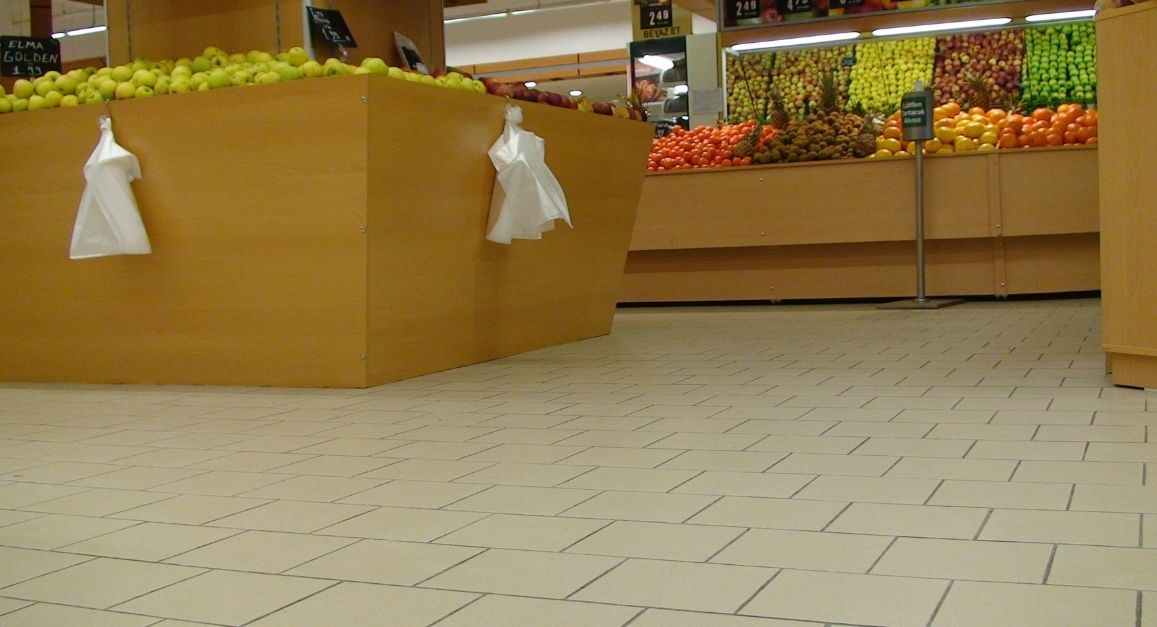
Usage in Food Industry
Its use in the health sector is very important in terms of ensuring hygiene in health institutions. Sterilization of such areas positively affects human health. Hygiene problems that may occur during procedures and surgical applications may cause the procedures to fail. Therefore, food hygiene flooring solutions in health institutions always have to provide hygiene.
Due to the mentioned issues, floor coverings used in the health sector are produced in accordance with hygienic standards. Sterile flooring is frequently preferred in hospitals, clinics, laboratories and similar health institutions because of their hygienic, water-resistant and easy-to-clean properties. In addition to these, the use of hygienic flooring is at the forefront in polyclinics and veterinary clinics.
Conclusion
Hygienic flooring has great importance in places with high human traffic, such as the food industry and the health sector. Ceramic flooring, a product demanded in many sectors, is extremely resistant to external impacts. In this way, it does not cause any problems in long-term use. At the same time, it does not deform after use and maintains its aesthetic and stylish appearance. During contact with liquid, it minimizes liquid transmissivity. Because of its features, it meets the needs of different sectors in the best way and finds itself among the frequently demanded floor solutions.

